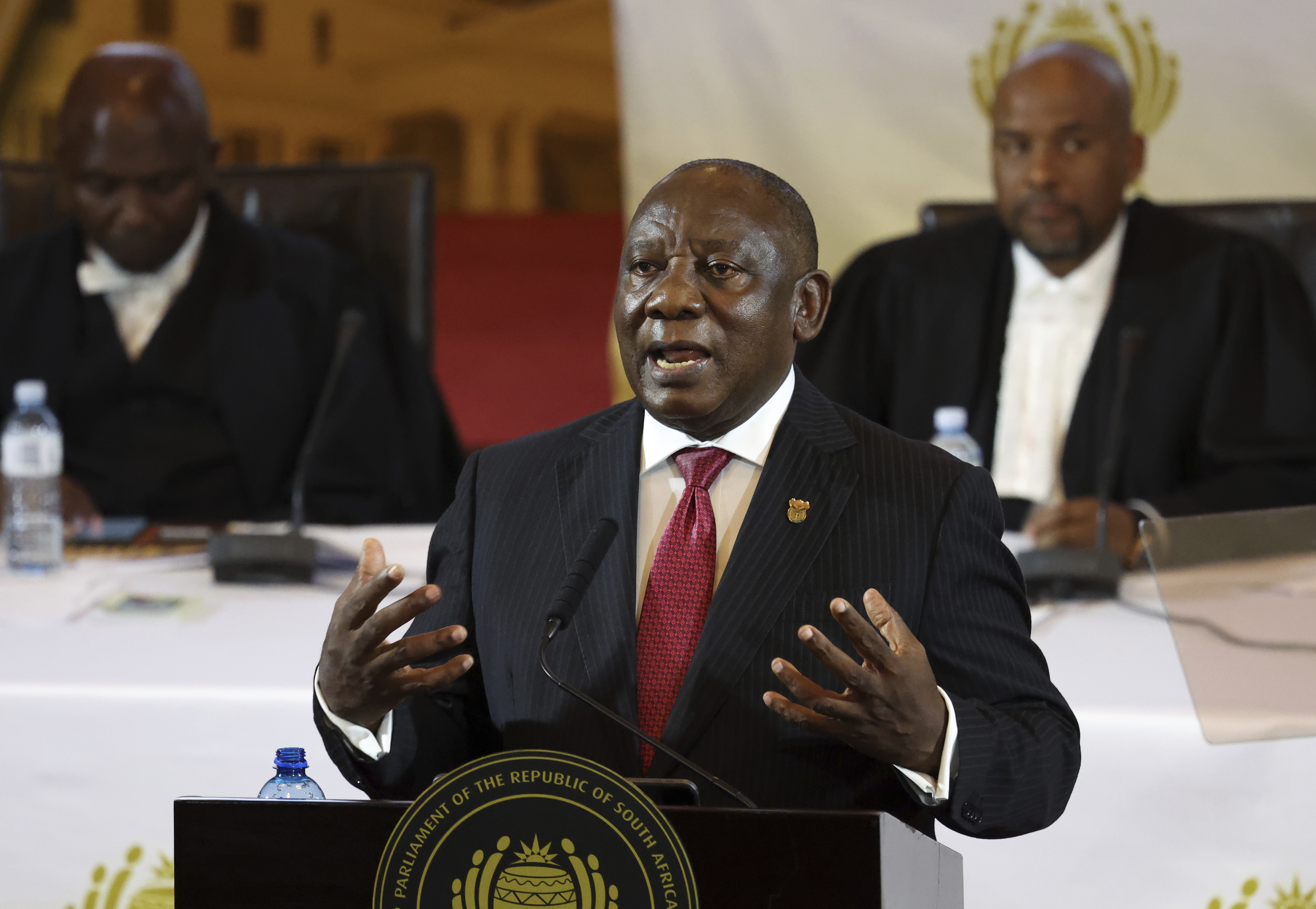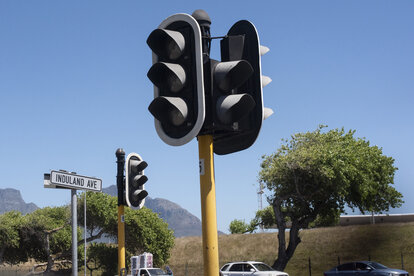South Africa
Alice in Wonderland?

Der südafrikanische Präsident Cyril Ramaphosa hält seine Rede zur Lage der Nation 2024 in Kapstadt, Südafrika.
© picture alliance / ASSOCIATED PRESS | Esa AlexanderThe South African President Cyril Ramaphosa delivered his potentially last State of the Nation Address as the country stands just a few months away from national elections. While he emphasises progress, critics see a reality far from the proclaimed successes. Corruption, unemployment, and a persistent energy crisis cast doubt and could shake confidence in the ruling party.
On the evening of February 8th, just a few months before the national elections, the incumbent South African President delivered his potentially last State of the Nation Address (SONA), reflecting on the challenges and successes of 30 years of democracy and the 30-year rule of the African National Congress, ANC.
The SONA is always held at the beginning of the year and is considered a significant political event in South Africa. The President announces the political outlook and priorities for the upcoming year. Although this year's SONA was clearly dedicated to the ANC's election campaign, the expected date for the parliamentary elections, presumed to be at the end of May, remains unconfirmed.
President Ramaphosa instead emphasised the progress South Africa has made since the introduction of democracy in 1994 under ANC governance but also pointed out the challenges the country still faces. The systematic corruption, termed "state capture," which he attributed to his predecessor President Jacob Zuma, must be finally overcome. In this context, he outlined his plans for local economic growth, job creation, and the elimination of inequality.
While the ANC and its supporters patted themselves on the back, celebrating the past 30 years and emphasising how much they had achieved in times of multiple crises, criticism poured in from the media, opposition, and parts of the population. The parliamentary leader and party leader of the strongest opposition party, the Democratic Alliance (DA), John Steenhuisen, drew parallels to "Alice in Wonderland," suggesting the reality was far removed from what Ramaphosa reported. The ANC completely ignored that corruption and youth unemployment had reached new highs, crime was increasing, and there was no perspective for young South Africans. Critics fear that South Africa could face a fate similar to Zimbabwe if the government continues to fail to present concrete plans and implement them.
"The worst is over" – Is South Africa finding its way out of the devastating energy crisis?
South Africa has been in a massive electricity crisis for years, leading to regular partial power cuts for several hours and having enormous effects on the country's economic productivity. Just last year, the country reached a new high in power cuts – there were 332 days of so-called "load shedding" in 2023. While the President emphasised on the evening of his address that "the worst is over, and the end of power cuts is within reach," part of the population was again left in the dark the night after the speech. However, the President promised to expand areas in the renewable energy sector, thereby creating job opportunities.

Ampelanlage an einer belebten Kreuzung während eines geplanten "Loadshedding" in Landsdowne, einem Vorort von Kapstadt. Beim sogenannten "Loadshedding" wird für mehrere Stunden der Strom abgestellt, um das Stromnetz zu entlasten.
© picture alliance/dpa | Rodger Bosch"We have come a long way"
In his State of the Nation Address, the President initially expressed optimism. The President and entrepreneur, counted amongst the richest South Africans, highlighted that South Africa has made significant progress since 1994. However, the country still faces major challenges such as high unemployment, entrenched poverty affecting millions, and increasing inequality between population groups. "The economy is now three times larger than it was 30 years ago. The number of employed South Africans has increased from eight million to over 16.7 million today," said Ramaphosa. While the President admitted that the unemployment rate was at an all-time high and pledged to combat youth unemployment, he overlooked the full extent: one-third of school leavers or university graduates aged 15-24 have no prospects of formal employment. It gets even worse: 43% of working-age individuals between 15 and 34 are neither employed nor in school or vocational training.
Corruption is "deeply rooted" in the state apparatus
The former practising lawyer Ramaphosa admitted that corruption in South Africa is "deeply rooted" and described it as "one of the greatest challenges this government has had to deal with since taking office." He acknowledged that public trust was suffering as a result and that the government must finally eradicate corruption. He explained the government's efforts to combat corruption and called on the public to be vigilant. While the President consistently addressed corruption within his own party ranks, which was acknowledged by the population, he himself faced corruption allegations and criticism in 2022 after around $580,000 in cash was found hidden in a couch on his farm.
The upcoming elections – a major question of trust
The African National Congress ended the horrific apartheid and was therefore celebrated and honoured for years. There was a sense of connection and loyalty to support the ANC and thus the legacy of freedom fighter Nelson Mandela and ultimately vote for it. According to polls, for the first time since the end of apartheid and after 30 years of ANC rule, the ruling party could lose its majority in parliament.
Young South Africa seems increasingly to be losing trust in the former liberation party. It is those affected most by poverty, inequality, unemployment, and lack of prospects who are fed up with empty promises.
Genesis Cleveland, LL.M. Berkeley, works as a Senior Consultant on projects in Southern Africa.
